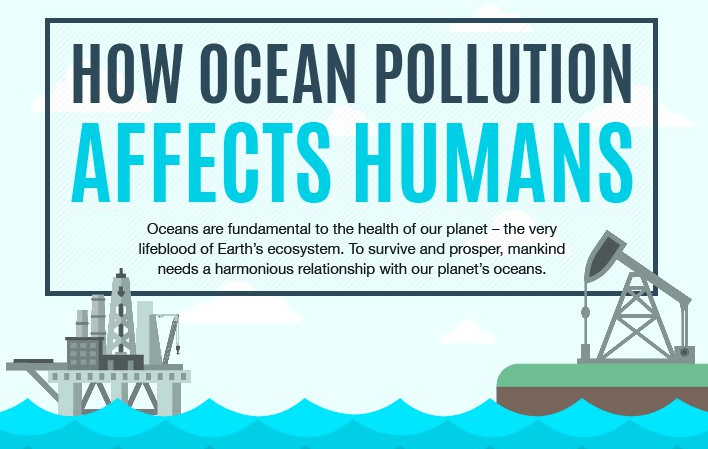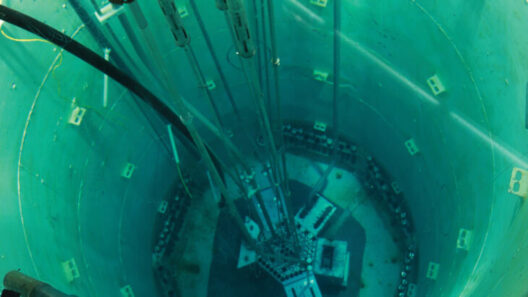How often have you pondered the ramifications of ocean pollution on our world? It’s not just a question of environmental degradation; it is intricately connected to energy conservation, which is a pressing concern for the future. As the oceans become increasingly burdened by plastic waste, chemical runoff, and other pollutants, the subtext of these actions reverberates into the realm of energy production and consumption. This exploration seeks to unravel the threads of this complex relationship and emphasize the urgent need to consider how we manage our oceans for posterity.
To begin with, let’s consider the nature of ocean pollution. Pollution manifests in various forms, including the ubiquitous microplastics that infiltrate every layer of the ocean. These tiny particles not only disrupt marine life but also interfere with the efficiency of the ocean as a natural resource. The ocean plays an essential role in the global climate system, and its health directly impacts the energy sector. For example, marine ecosystems, such as mangroves and coral reefs, are effective at sequestering carbon, a process vital for energy conservation efforts. As pollution degrades these systems, their capacity to absorb carbon diminishes, thereby exacerbating climate change and necessitating increased energy consumption to counteract its effects.
One might wonder: what innovative energy solutions could emerge if we positively transformed polluted oceans into productive environments? The notion of harnessing marine energy is one such solution. Ocean current turbines and wave energy converters stand as harbingers of renewable energy generation. However, their efficacy hinges on a clean marine environment. Corrosion from pollutants can significantly shorten the lifespan of these technologies, thus resulting in higher maintenance costs and energy expenditures. Therefore, ocean pollution poses a considerable challenge to the viability of sustainable energy alternatives.
Moving forward, we must interrogate the direct implications of marine health on energy consumption patterns. For example, as ocean temperatures rise due to climate change, we may witness alterations in wind and water currents. The implications for renewable energy generation, particularly wind and hydroelectric power, are profound. Changes in these natural systems could lead to decreased energy output, pushing societies to revert to fossil fuels as a more reliable, albeit detrimental, energy source. This cyclical problem creates an urgent need for interventions designed to reduce pollution, which is presently stymieing cogent progress.
Moreover, ocean pollution hinders the functioning of critical infrastructure vital for energy production. Desalination plants, increasingly relied upon in arid regions, face operational challenges due to the intrusion of pollutants. Contaminated seawater can damage membranes and other components, resulting in increased energy demands for purification processes. This adds an additional layer of complexity and cost to an already energy-intensive process and launches us into a dilemma: should we invest in counterproductive practices that require more energy or should we diligently focus on curtailing pollution to foster long-term energy efficiency?
The ramifications of unchecked ocean pollution also extend to the fishing industry, which is essential for both energy and food security. Overfishing and pollution together contribute to dwindling fish stocks, which in turn affects local economies dependent on sustainable fishing practices. The reliance on imported seafood forces many regions to consume more energy for transportation, thus generating greater carbon emissions. It begs the question: how can we balance the enduring demand for marine resources with the imperative to conserve energy?
In essence, the relationship between ocean pollution and energy conservation elucidates a broader environmental narrative. It invites us to consider the interconnectedness of our actions and their repercussions on the planet’s energy systems. The challenge we must confront is not merely one of cleaning our oceans but also of reevaluating our energy paradigms. What if we reimagined a future where clean oceans directly equated to renewable energy abundance? Could we not harness the oceanic potential for a sustainable energy future significantly worth pursuing?
Transitioning to a cleaner ocean is not merely an ecological ambition; it’s also a pathway to enhancing energy efficiency. Coastal communities that engage in cleanup activities can serve as microcosms of sustainability. These grassroots efforts can yield social awareness and technological innovations in wastewater treatment and pollution reduction strategies, which in turn catalyze energy conservation initiatives. As technology continues to evolve, pooling resources towards ocean conservation could unlock groundbreaking advancements in energy-generation techniques, offering a synergistic benefit to both sectors.
Furthermore, government policies and corporate responsibilities play an instrumental role in effecting change. Regulatory frameworks aimed at reducing ocean pollutants can create shifts in energy consumption dynamics. Initiatives that promote green infrastructure and incentives for clean energy investments could mitigate the utility burdens faced by communities reliant on ocean resources. This multi-faceted approach demonstrates the necessity of collective action across sectors, encouraging stakeholders to embrace their role in this critical endeavor: the conservation of our oceans equates to the conservation of energy.
As we delve into the multifarious implications of ocean pollution on energy conservation, it becomes evident that the narrative is not merely about protecting marine beauty. It is about securing a favorable energy future. Addressing ocean pollution presents an unprecedented opportunity to reduce energy consumption, innovate renewable technologies, and foster sustainable practices. The collective action of individuals, communities, industries, and governments can herald a transformative era where ocean health and energy conservation are not mutually exclusive but symbiotically linked. The future hinges on this relationship, and the choice to act sustainably lies within reach.








